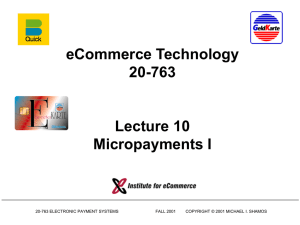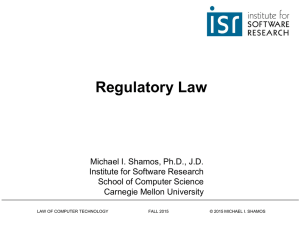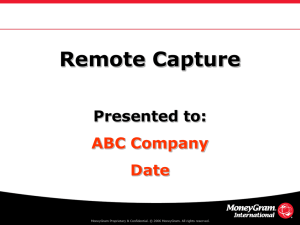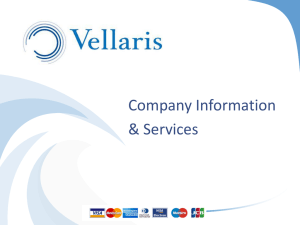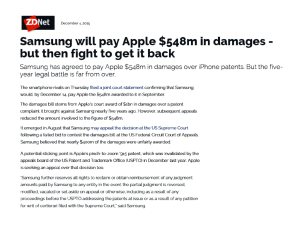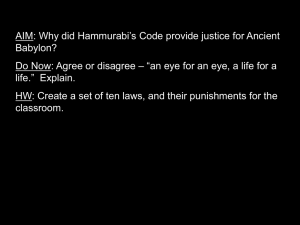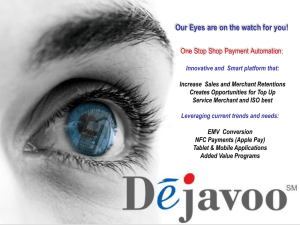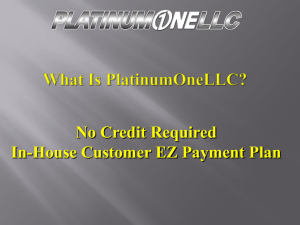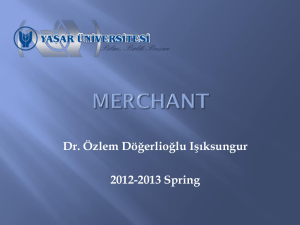9_micro1 - La Passerelle
advertisement
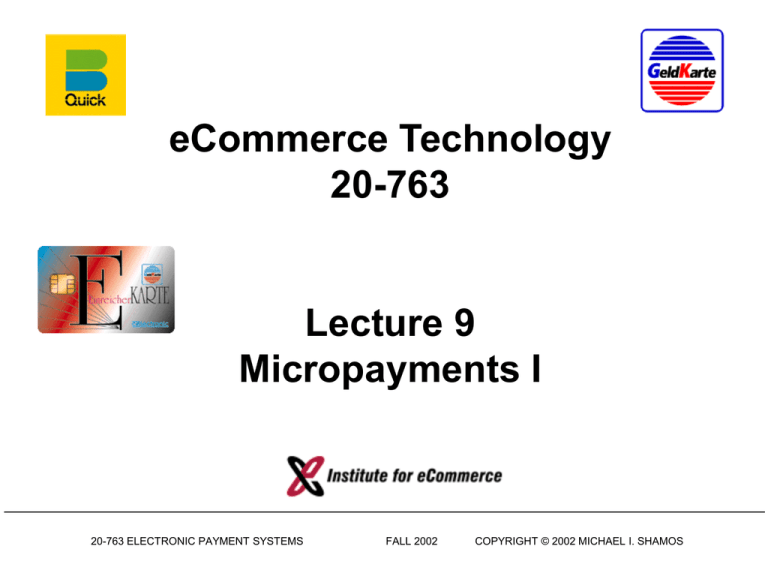
eCommerce Technology
20-763
Lecture 9
Micropayments I
20-763 ELECTRONIC PAYMENT SYSTEMS
FALL 2002
COPYRIGHT © 2002 MICHAEL I. SHAMOS
Micropayments
• Replacement of cash
– Cheaper (cash very expensive to handle)
– Electronic moves faster
– Easier to count, audit, verify
• Small transactions
– Beverages
– Phone calls
– Tolls, transportation, parking
– Copying
– Internet content
– Lotteries, gambling
20-763 ELECTRONIC PAYMENT SYSTEMS
FALL 2002
COPYRIGHT © 2002 MICHAEL I. SHAMOS
Micropayments
• Transactions have low value, e.g. less than $1.00
• Must process the transaction at low cost
• Technological savings:
– Don’t verify every transaction
– Use symmetric encryption
• Float-preserving methods
– Prepayment
– Grouping
• Aggregate purchases (to amortize fixed costs)
• Provide float to processor
• Partial anonymity (individual purchases disguised)
20-763 ELECTRONIC PAYMENT SYSTEMS
FALL 2002
COPYRIGHT © 2002 MICHAEL I. SHAMOS
Micropayments
• Prepaid cards
– Issued by non-banks
– Represent call on future service
– Not money since usable only with one seller
• Electronic purse
– Issued by bank
– Holds representation of real money
– In form of a card (for face-to-face or Internet use)
– In virtual form (computer file for Internet use)
– The two forms are converging, e.g. wireless
20-763 ELECTRONIC PAYMENT SYSTEMS
FALL 2002
COPYRIGHT © 2002 MICHAEL I. SHAMOS
Electronic Purse Issues
• Loading (charging) the purse with money
• Making a payment (removing money from the card)
• Clearance (getting money into the seller’s account)
20-763 ELECTRONIC PAYMENT SYSTEMS
FALL 2002
COPYRIGHT © 2002 MICHAEL I. SHAMOS
GeldKarte
• Smart card system
• Issued by Zentraler Kreditausschuß (Germany)
• Card contains counters representing money value
– Max balance 400 DEM = $188
• Card is loaded through a loading terminal
– Debits customer’s bank account
• Spending at merchant terminal or on Internet
– Amount deducted from card, added to merchant terminal (card)
– No real-time authorization
• End-of-day: merchant uploads transactions
• Money credited to merchant account
• Bank fee: 0.3%, minimum $0.01
20-763 ELECTRONIC PAYMENT SYSTEMS
FALL 2002
COPYRIGHT © 2002 MICHAEL I. SHAMOS
Loading GeldKarte
LOADING
TERMINAL
(ATM)
2. AUTHORIZATION
REQUEST
1. LOAD REQUEST + PIN
8. VALUE TRANSFER
5. AUTHORIZATION
7. SAM EXCHANGE
SAM
SAM
LOADING MANAGER
ISSUING BANK
9. OFFLINE
FILE TRANSFER
4. AUTHORIZATION
3. AUTHORIZATION
REQUEST
AUTHORIZATION
SERVER
6. UPDATE
ACCOUNTS
SAM = SECURITY
APPLICATION
MODULE
ACCOUNT
DATABASE
SOURCE: SHERIF
20-763 ELECTRONIC PAYMENT SYSTEMS
FALL 2002
COPYRIGHT © 2002 MICHAEL I. SHAMOS
GeldKarte Payment
• Customer inserts GeldKarte in slot (at merchant
terminal or PCMCIA card)
• Merchant authenticates customer card
OFFLINE
• Customer authenticates merchant card (NO THIRD PARTY)
• Transfer purchase amount
• Generate electronic receipts
• (Later) Merchant presents receipt to issuing bank to
obtain credit to merchant account
• No purse-to-purse transactions
20-763 ELECTRONIC PAYMENT SYSTEMS
FALL 2002
COPYRIGHT © 2002 MICHAEL I. SHAMOS
GeldKarte Card Authentication
• Merchant SAM generates a random number RAND (to
prevent replay attack), sends to customer card with
request for customer card ID (CID)
• Card sends CID, a generated sequence number SNo,
RAND, and H(CID) encrypted with a symmetric secret
key SKC (known to card, not customer)
• No public-key encryption
• Merchant computes SKC from CID and his own secret
key SKM (known to card, not merchant)
• Merchant can now validate integrity of the card message
by computing H(CID)
20-763 ELECTRONIC PAYMENT SYSTEMS
FALL 2002
COPYRIGHT © 2002 MICHAEL I. SHAMOS
GeldKarte Value Exchange
• Customer sends StartPayment message
• Merchant sends MID, merchant’s transaction number
TNo, SNo, a MAC encrypted with SKC, CID and the
value M to be transferred, all encrypted with SKC
• Customer can decrypt this message with SKC and
validate merchant
• Customer checks CID, M and SNo (prevent replay)
• Customer card verifies at least M remaining, subtracts
M, increments SNo, records payment data, generates
proof of payment: { M, MID, SNo, TNo, ANo, MAC },
send to merchant card
20-763 ELECTRONIC PAYMENT SYSTEMS
FALL 2002
COPYRIGHT © 2002 MICHAEL I. SHAMOS
GeldKarte Value Exchange, cont.
• Merchant verifies payment:
– compute actual payment amount M' from the proof of payment,
compare with M
– verify MID and TNo
– increment TNo, increase balance by M
– notify merchant of success
– record transaction data with different secret key KZD
• Merchant requests payment from bank (later)
– sends encrypted proofs of payment to bank
– TNo prevents more than one credit per transaction
20-763 ELECTRONIC PAYMENT SYSTEMS
FALL 2002
COPYRIGHT © 2002 MICHAEL I. SHAMOS
GeldKarte Clearance
• Uses a “shadow account” (Börsenverechnungskonto)
to track the contents of the card
– When card is loaded, shadow account is credited
– When money is spent, shadow account is debited
• online transactions immediately
• offline transactions later
• If card is lost or damaged, money can be replaced
• Problem: every transaction is recorded, no anonymity
• Solution: “Weisse Karte.” Bought for cash, not
connected to any bank account
20-763 ELECTRONIC PAYMENT SYSTEMS
FALL 2002
COPYRIGHT © 2002 MICHAEL I. SHAMOS
GeldKarte Security
• DES (customer), triple DES (merchant) (cipher block
chaining or cipher feedback mode)
• 128-bit hashes
• Each card has unique ID, unique symmetric key, PIN
stored in “secret zone” and in bank
• Unique transaction numbers
• New SECCOS, Secure Card Operating System, allows
PKI and digital signatures
20-763 ELECTRONIC PAYMENT SYSTEMS
FALL 2002
COPYRIGHT © 2002 MICHAEL I. SHAMOS
GeldKarte Internet Payment
“Caroline” Trusted
Wallet Device
GeldKarte Reader
USB or Infrared
Connection to PC
• Wireless potential
20-763 ELECTRONIC PAYMENT SYSTEMS
FALL 2002
COPYRIGHT © 2002 MICHAEL I. SHAMOS
Other Electronic Purses
QIANFLEX (CHINA)
AUSTRIAN QUICK
PEOPLE’S BANK OF CHINA ePURSE
PRISMERA
CYBERFLEX JAVA CARD
20-763 ELECTRONIC PAYMENT SYSTEMS
DANMØNT
FALL 2002
COPYRIGHT © 2002 MICHAEL I. SHAMOS
Readers
CASHMOUSE
20-763 ELECTRONIC PAYMENT SYSTEMS
FALL 2002
COPYRIGHT © 2002 MICHAEL I. SHAMOS
Q&A
20-763 ELECTRONIC PAYMENT SYSTEMS
FALL 2002
COPYRIGHT © 2002 MICHAEL I. SHAMOS
